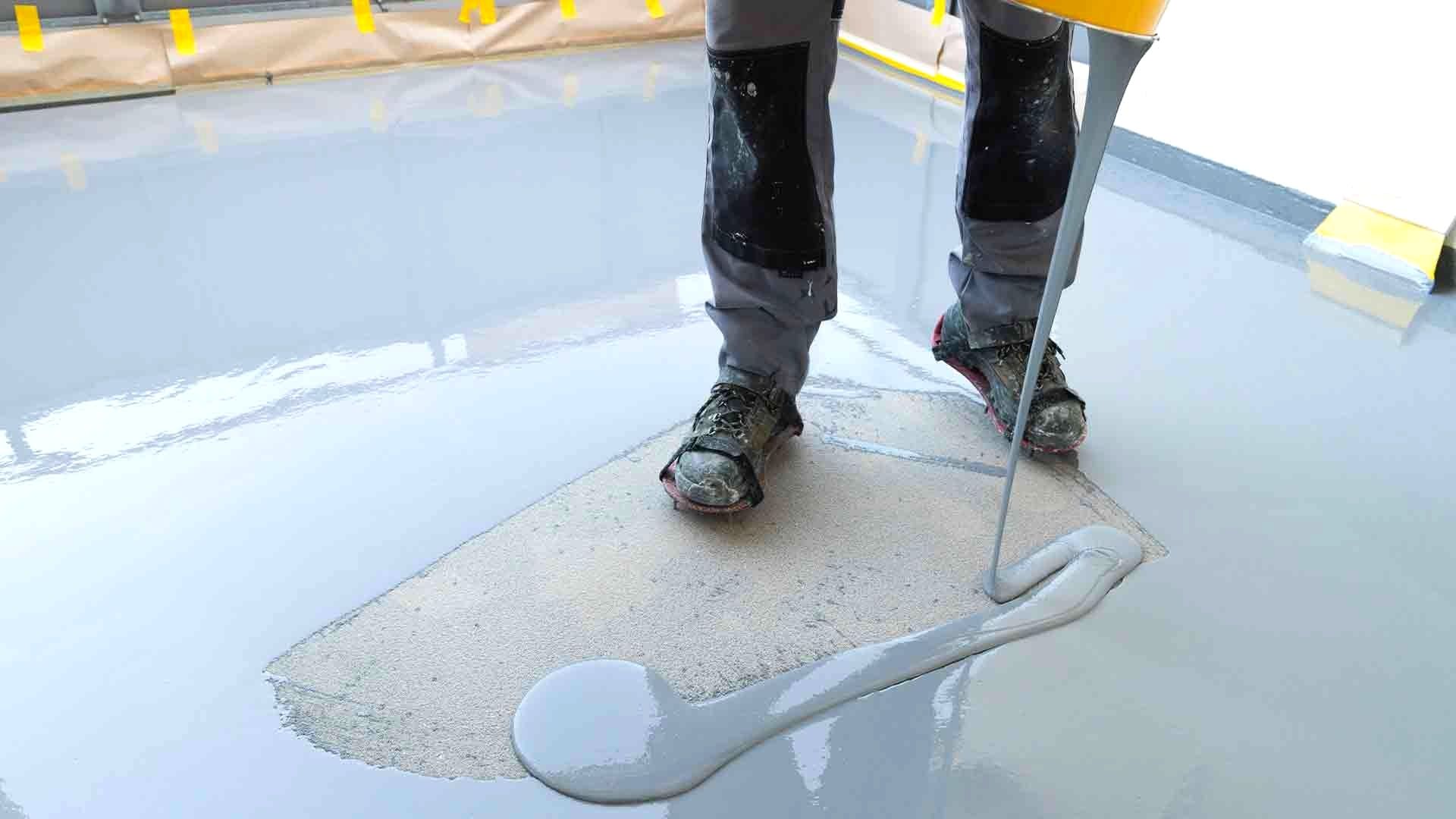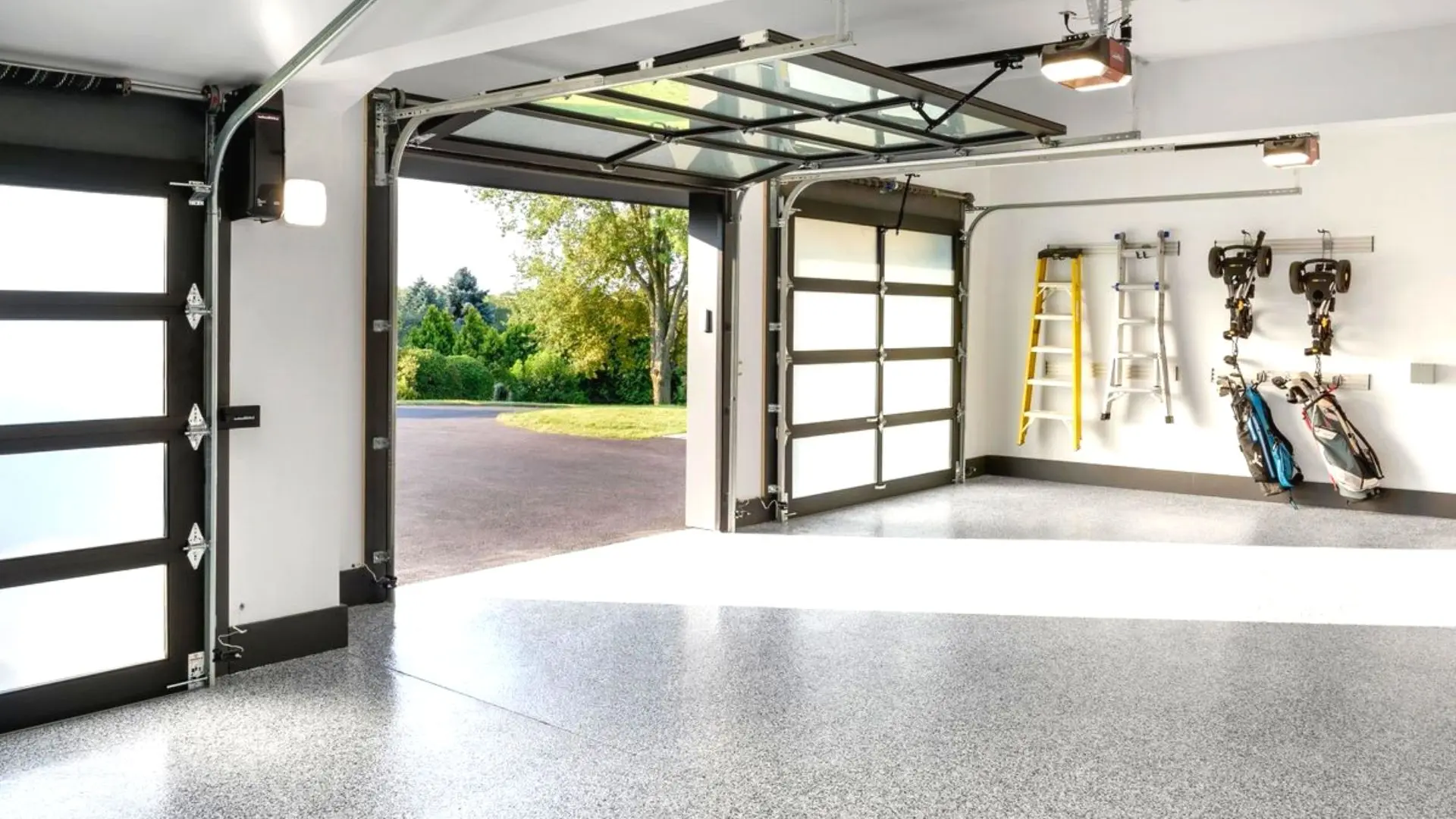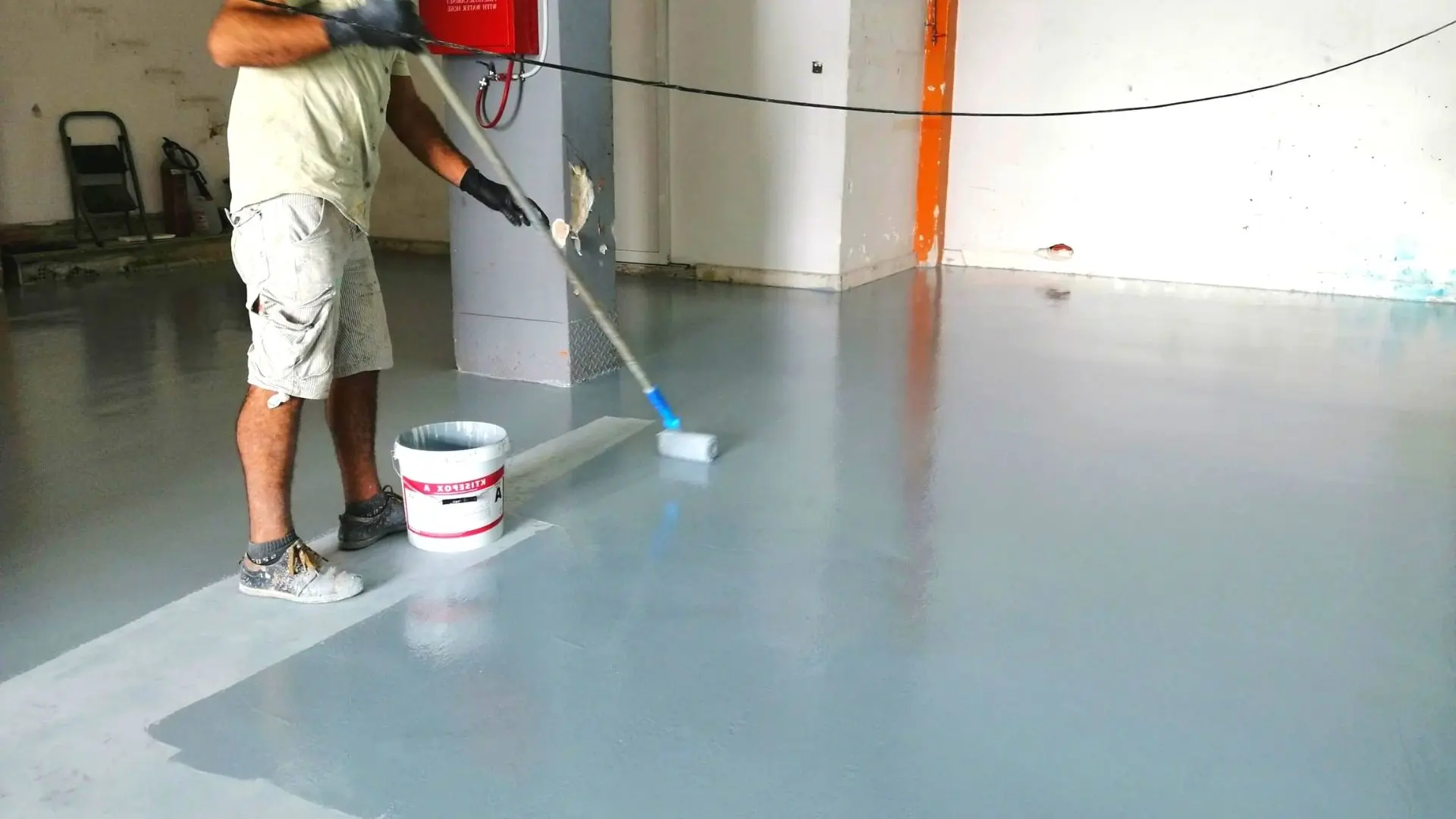Understanding The Pros And Cons Of Epoxy Floors

Finding the best flooring option for your home or office can be tough. It would be best to have a durable floor that resists spills and stains.
Almost all types of flooring come with certain advantages and disadvantages. So, choosing a flooring type whose benefits outweigh the disadvantages is best. That’s when epoxy floors enter the scene!
However, before installing an epoxy floor in your commercial or residential property, it’s best to consider all its benefits and disadvantages. This article will discuss the pros and cons of having an epoxy floor.
So, let’s get on with it without wasting any more time!
Pros Of Installing Epoxy Floors

1. Appearance
Epoxy floors offer a modern and sophisticated look owing to their professional appearance. They are much more bright and more appealing than your regular concrete surfaces. Hence, the appearance can attract you to install epoxy floors in your home or office.
Furthermore, epoxy floors’ even and smooth surface makes them relatively easy to clean and requires minimum maintenance. So, cleaning them up won’t be a problem, even if you mess up these floors.
2. Affordability
It is essential to remember that affordability is always one of the most critical factors when selecting a floor covering for your home or business, and epoxy floors excel in this regard. It is not expensive to install an epoxy floor per square foot.
Since you can directly install it over concrete or other types of flooring, the installation costs of an epoxy floor are considerably lower than any other flooring option. Thus, affordable pricing is one of the most significant advantages of installing an epoxy floor.
3. Durability
Very few other flooring types can beat epoxy floors regarding durability. Concrete is probably the only more durable material than an epoxy floor, but it requires proper sealing and maintenance.
However, epoxy flooring requires a concrete subsurface and makes the concrete even more durable. Not only that but an epoxy floor can also be easily rolled over the cement underlayment without using glue or mortar. Hence, it is more durable and easier to install.
4. Resistance
Epoxy floors are well-known for their resistant quality because they show superb gasoline, oil, bleach, cleansers, and transmission fluid resistance. They can withstand almost any chemical spill without losing their smooth and even coating. Hence, you can frequently see epoxy floors in garages and automotive factories.
On top of this, epoxy floors are also resistant to heat, water, bacteria, and germs, so you can easily sanitise them. Their bacteria and germ-resistant quality make them ideal for medical clinics and hospitals.
5. Protective
If you want to protect the concrete floors from stains, grease, cracks, and moisture, installing an epoxy floor can be your best option. It can significantly reduce your concrete floors’ cleaning and maintenance costs by protecting them and enhancing their durability.
However, the protective quality of epoxy floors dramatically depends on the installer’s workmanship. Hence, it’s best to hire a highly experienced professional to install epoxy floors in commercial or residential properties.
6. Longevity
Longevity is a tremendous advantage of installing epoxy floors because they can last for years without peeling or cracking. Their durability and longevity make them quite suitable for industrial and commercial applications.
7. Variety
Epoxy flooring offers various colours that can go well with any room decor, making the flooring highly versatile. You can arrange it in a traditional or modern way and choose from personalised designs and patterns based on your preference. Hence, you get several options if you install an epoxy floor to offer an elegant look to the house or office.
Cons Of Having Epoxy Floors

1. Temporary
One of the most significant drawbacks of epoxy floors is that they are temporary. Although they are resistant and durable, an epoxy floor over time will show signs of chipping and cracking, and therefore, you must replace the old epoxy flooring with a new coat as soon as possible.
Wear and tears occur even more frequently on the epoxy floor when heavy objects are dragged across or dropped on the floor. The small chips on the floor can eventually lead to severe damage that requires immediate repair. But, compared to many other flooring solutions, epoxy is still one of the most durable.
2. Slippery
The slippery quality of epoxy floors isn’t a universal disadvantage. Instead, this problem is quite specific to an oil-covered epoxy floor. It can become quite slippery when wet, leading to accidents and injuries.
Thus, installing epoxy floors in areas prone to oil spills on the floor is not a good idea. However, you can solve this problem of slipping by texturing the floor.
3. Preparation And Application
Applying the epoxy coat on your existing concrete floor can be lengthy. Firstly, you need to prepare the floor to make it clean and grease-free. Plus, it would be best if you filled in the cracks in the concrete floor before rolling over the epoxy coat.
It takes several hours to dry a single coat of epoxy, and you can’t apply the second coat until the first coat has completely dried. Hence, the lengthy preparation and application methods are a huge drawback of installing epoxy floors.
4. Sensitivity
Another huge disadvantage of installing an epoxy floor is its sensitivity. If the floor isn’t installed correctly, it won’t be durable. The outer epoxy coating is easily susceptible to scratching, and it’s also quite difficult to clean paint stains from the epoxy floor surface.
You also have to apply the epoxy floor coating when the humidity is relatively low because moisture can negatively impact its durability. Hence, the sensitivity of the epoxy flooring makes the entire installation process a bit of a hassle. However, with experienced flooring technicians, it shouldn’t be a problem.
5. Adherence
Epoxy floors cannot adhere to the concrete underlayment if there is moisture. The concrete subsurface must be completely dry and clean to make the epoxy coating adhere to it properly. If the floor is damp, the epoxy paint will peel off, affecting the durability and longevity of the floor.
Again, you can avoid this by hiring a professional team of concrete finishing experts.
Epoxy Floors And Their Benefits
As you can see from our article, there are several benefits and disadvantages of installing an epoxy floor. We strongly recommend hiring a professional expert who can help you with the entire flooring of the house or office.
With expert guidance from a professional, installing the epoxy floor will be more accessible, and maintenance will also be a breeze. Hence, the chances of delamination or floor damage will be minimised significantly.
Whenever you need help, Top Coat Concrete’s friendly and experienced staff is always available. Our flooring specialists in Sydney have years of experience installing, maintaining, and repairing epoxy floor coatings. Get in touch with us today!
With that, we’ll sign off. See you next time!
Newsletter
Sign up to our flooring, epoxy and concrete blog newsletter and get all the latest news, tips and tricks from the industries best in Sydney.
Related Articles

Amazing Benefits Of Epoxy Flooring For Commercial Kitchens
Wondering if epoxy flooring is the best choice for your commercial kitchen or not? Then check out our guide to know the perks of installing one in your space.

How Thick Should An Epoxy Flooring Be?
Several factors go into deciding what epoxy flooring thickness is best. For more info about our epoxy flooring services, check out this post, or contact us today!

Epoxy Paint: What Is It Used For and Its Benefits?
What is the purpose of epoxy paints? Our guide will help you find the answer to your question by explaining everything you need to know.